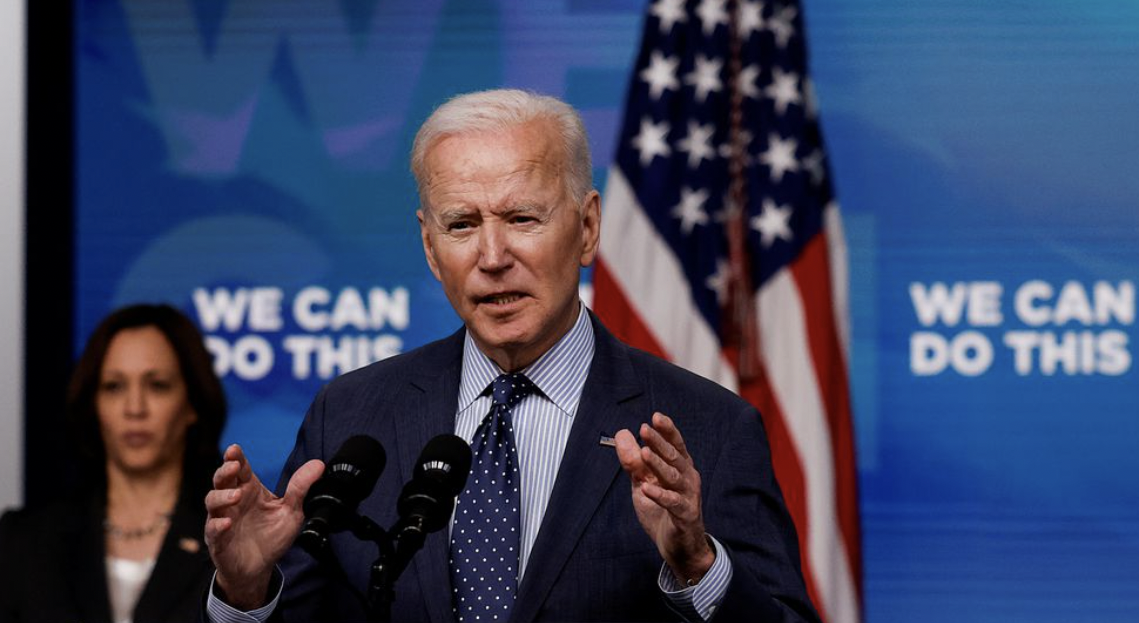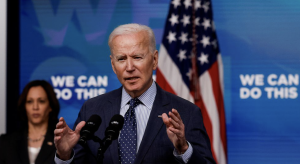Join Our Telegram channel to stay up to date on breaking news coverage
Silvergate Bank, Silicon Valley Bank (SVB) and Signature Bank, three significant crypto-friendly banks that collapsed overnight, put a chain of events in place that impacted bottom-line investors, tech startups and millions of businesses in different ways. Even though the Federal government has taken steps to make sure customer deposits are protected, the President of the United States Joe Biden assured taxpayers that it will be at “no cost” to them.
The Biden administration approved an extraordinary intervention aimed at averting a crisis in the financial system by announcing on Sunday night that all depositors at the embattled Silicon Valley Bank (SVB) would have access to all of their money by the morning of Monday, March 13.
On Saturday, major stablecoins including the second largest stablecoin by market cap USD Coin (USDC), DAI, and USDD deviated from their dollar peg after Circle, the company that issues USDC, revealed that SVB held $3.3 billion of its $40 billion in reserves.
Knowing that numerous other entities tied to the collapsing banks may suffer irreparable damage, the Biden Administration announced his administration’s commitment to hold those liable for the incident on March 12 accountable. Biden promised to do “whatever is needed” to protect the banking system.
The US government also said that it was extending protection to depositors of a second bank, Signature Bank of New York, which state regulators closed on Sunday as uncertainty in the banking sector grew.
Separately, the Federal Reserve announced that it was creating a lending facility for the nation’s banks, aimed at supporting them while dealing with any financial risks caused by Friday’s collapse of SVB.
Although some praised the Federal government’s proactive efforts to minimize damages, many also noted that the taxpayers would ultimately bear the brunt of the depositors’ bailout. On March 13, Biden addressed these concerns in a tweet:
Thanks to actions we've taken over the past few days to protect depositors from Silicon Valley and Signature Banks, Americans can have confidence that our system is safe.
People’s deposits will be there when they need them – at no cost to the taxpayer.
— President Biden (@POTUS) March 13, 2023
Biden assured Americans that the traditional banking system was secure following the federal intervention. He further added that safeguarding SVB and Signature Bank depositors will not affect taxpayers.
However, not everyone bought Biden’s idea. Many of his followers on Twitter many pointed out that everything the U.S. government does or touches “costs the taxpayer!”
No cost to the taxpayer means there were ample funds available in the FDIC insurance fund to pay depositors. That’s not true. The funds were transferred from the treasury to the fund. The Fed printed the money adding to the deficit The Fed bailout will be paid for by inflation.…
— 🔥🔥pissed off patriot🇺🇸.👊💪🇺🇸🇺🇸🇺🇸🇺🇸 (@traderg66) March 13, 2023
In a separate announcement, the US Federal Reserve is closely investigating the Silicon Valley Bank and the circumstances under which it fell. It includes an inquiry into how it was regulated and supervised.
@federalreserve announces that Vice Chair for Supervision Michael S. Barr is leading a review of the supervision and regulation of Silicon Valley Bank, in light of its failure. The review will be publicly released by May 1: https://t.co/wQ39KLiwHE
— Federal Reserve (@federalreserve) March 13, 2023
As previously reported by InsideBitcoins, Silicon Valley Bank, which specialized in financing technology companies, was shut down by California Department of Financial Protection and Innovation on Friday, March 10 with no specific reason offered for the bank’s forced closure.
However, it is suspected that SVB was on the edge of collapse due to severe liquidity troubles relating to major losses on government bond investments and unprecedented cash withdrawals. It had been attempting to raise money in order to cover a loss on the sale of assets impacted by rising interest rates. Customers rushed to withdraw money as soon as they heard about the problems, creating a cash shortage.
SVB’s downfall marks the biggest bank failure in the USD since the 2008 financial crisis.
Related News:
- No Government Bailout For Silicon Valley Bank, Says Yellen
- Bitcoin Price Breaks Above $26K Following CPI Data
- Best NFTs to Buy
Join Our Telegram channel to stay up to date on breaking news coverage


